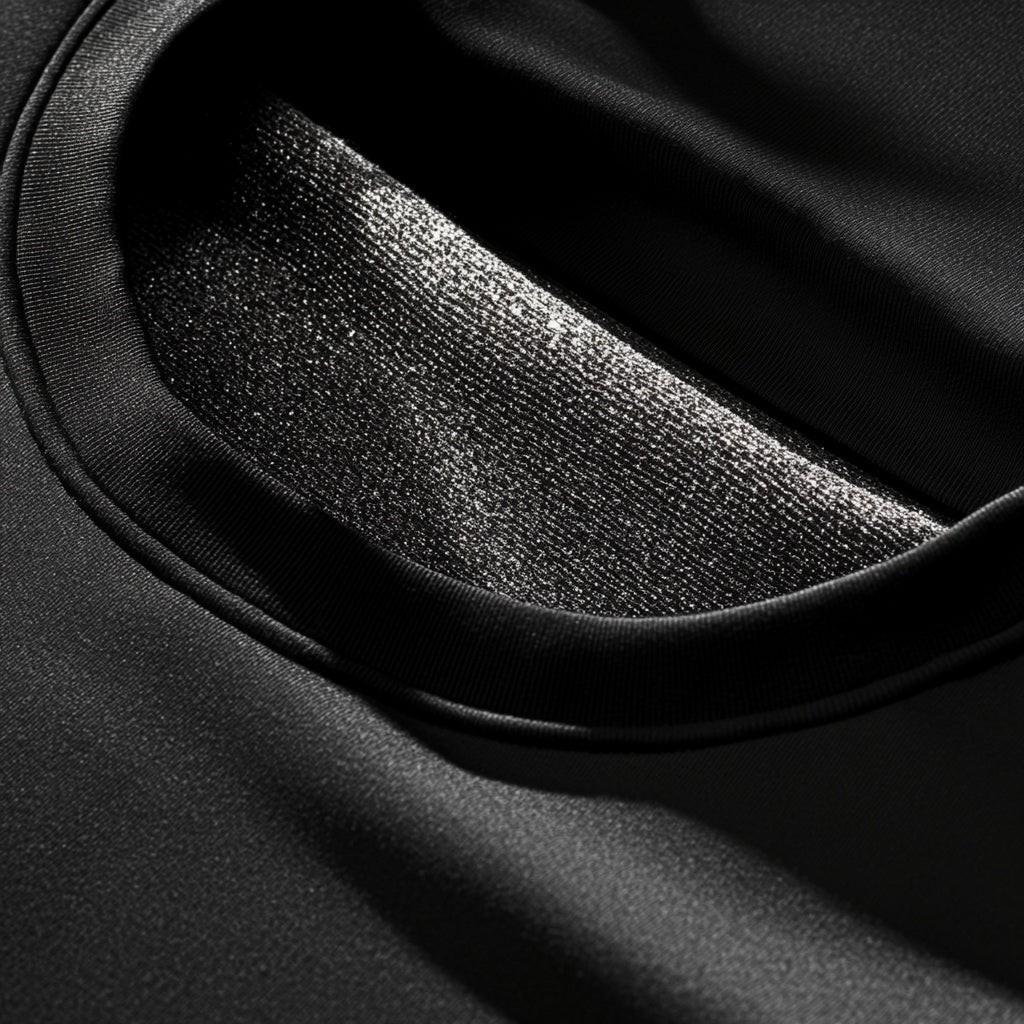Crackling in the Ears May Be a Symptom of Something More Serious
A frequent symptom, crackling in the ears is sometimes but not always indicative of the need for medical care. On the other hand, if it happens often or is very severe, this might be an indication of a more serious problem.
The majority of people who hear this sound have a problem with their Eustachian tubes. This condition arises when the small tubes in the ear do not open and shut as they should in order to maintain a balanced pressure, drain fluid, and protect against infection.
Explanations for the crackling in your ear:
- Dysfunction of the Eustachian tube: occurs when the Eustachian tube, a thin tube that links the middle ear to the back of the throat, becomes blocked. It's possible that a crackling or popping sound in the ear might be caused by this tube if it gets clogged or if it doesn't work correctly.
- Congestion of the sinuses: buildup of pressure in the middle ear, which can result in cracking or popping noises. Sinus congestion can be caused by allergies, colds, or sinus infections.
- Disorders of the temporomandibular joint (TMJ): The temporomandibular joint (TMJ) is the joint that links the jawbone to the skull. It is possible for this joint to be the root cause of a range of symptoms, including crackling or popping in the ear, if it becomes irritated or misplaced.
- Wax accumulation: Earwax is a natural material that aids in the protection of the ear canal; however, if it accumulates to an excessive degree, it may produce a blockage that results in noises like crackling or popping.
- Inner ear issues: Meniere's disease and otitis media (inflammation of the inner ear) are two conditions that may produce crackling or popping noises in the ear, in addition to other symptoms such as vertigo or hearing loss.
Causes
If you hear crackling in your ears on a regular basis, however, you should make an appointment with your primary care physician to rule out any serious medical conditions. It is possible that it is a symptom of a more serious underlying condition, such as hearing loss or ear infections.
The sound of crackling in the ear may be brought on by a variety of different factors, such as an excessive amount of earwax or changes in the pressure within the ear. It is also possible that this is an indicator of a disease known as tinnitus, which is characterized by a ringing or buzzing sound in the ear. Tinnitus may affect both adults and children.
It is possible for there to be a crackling sound emanating from the ear if there is an accumulation of earwax in the ear. Wax is produced by the ear canal, which helps to defend the ears from bacteria and other potentially harmful substances. On the other hand, the ear canals of certain individuals are not particularly effective at naturally expelling earwax on their own.
For instance, if you have an ear infection or have been using headphones or earplugs for an extended period of time, the accumulation of earwax might grow too thick and obstruct your eardrum. This can also happen if you have been wearing earplugs for an extended period of time. In addition, some ear problems, such as a deviated eardrum or an ear infection, may cause the accumulation of earwax to grow so severe that it plugs the eardrum and leads to crackling in your ears. This can also cause the buildup of earwax to get so bad that it can lead to hearing loss.
Crackling in the ears may also be caused by alterations in ear pressure, such as those caused by changes in altitude or swimming with your head above water. These shifts in pressure may have an effect on the eustachian tube, which is a small tube in your ear that maintains a pressure balance between your middle ear and the environment outside your head.
Through a narrow opening known as the tympanic membrane, your eardrum may be reached directly from the eustachian tube in your neck. When the pressure in these mucus-lined pathways becomes balanced, the tympanic membrane opens up, which enables fluid and air to freely travel within the ear.
Aging, disease, or accident may all cause damage to various portions of your ear, including the tympanic membrane and other components. These disorders may cause damage to your eardrum, which can lead to hearing loss or ringing in the ears (tinnitus).
In addition to allergies and persistent ear or sinus infections, tinnitus may be brought on by a variety of medical disorders. These disorders have the potential to irritate the middle ear, which may then lead to inflammation or infection in that region.
Middle ear myoclonus (MEM) is an additional disease that has the potential to cause tinnitus. The tensor tympani and stapedius muscles in your ear might spasm as a result of this disease, which can be the source of the noises of tinnitus that you experience.
Diagnosis
The sound of crackling in the ear is a typical complaint that may be brought on by a wide variety of factors. However, it may also be an indication of a more severe condition; thus, if you are hearing this sound often and it is not going away, you should seek the assistance of a physician or an audiologist as soon as possible.
The malfunction of the Eustachian tubes, which happens when the ear's small tubes do not open and shut in the appropriate manner, is the source of this sound the majority of the time. These tubes are located in your ear and link your ear canal to your nasal passageways and your upper neck. They release pressure, allow fluid to drain, and protect against infection whenever they open. It is possible for them to produce a crackling sound in your ear if they are obstructed.
It is possible that in certain situations it is a sign of a more severe condition, such as Meniere's disease, which is a condition that affects the inner ear. This disorder, which normally only strikes persons between the ages of 20 and 50, may result in symptoms such as vertigo, ear fullness, deafness, and a crackling sound, all of which can be quite uncomfortable.
Make an appointment with an audiologist or an ENT expert if you are having this symptom and are interested in learning more about its root cause. They will examine your ears in great detail and use instruments such as an otoscope and a tympanometer to locate the source of the issue.
Your audiologist will discuss potential treatments with you after they have established a diagnosis. For instance, if you have an infection, they may recommend that you take antibiotics or steroids, or they may recommend surgery to remove a tumor from your middle ear.
Your ear canals may be sticky and difficult to move freely due to an excessive accumulation of ear wax, which is another probable explanation of this sound. Because of this, the opening to your ear canal may get blocked, which will make it difficult for air to enter the ear.
This may produce a crackling sound that is reminiscent of popping when it occurs. It may be unpleasant and uncomfortable, but it will often only last for a short while.
Your ears may be evaluated by a specialist audiologist, such as a Miracle-Ear audiologist, who can then provide recommendations about the therapy that will work best for you. They are also able to provide you guidance on how to prevent future problems and lessen the likelihood of the damage becoming permanent.
Do not be reluctant to get in touch with the Hearing Health Clinic in Osseo, Minnesota, if you have been hearing a crackling sound in your ear and are interested in learning more about it. Our team of experts is able to evaluate your ears, establish the reason of the crackling, and give treatment choices to reduce discomfort, pressure, and other symptoms. They can do this by conducting an examination.
Treatment
Pain in the ear, ringing in the ears (also known as tinnitus), hearing loss, and other signs and symptoms of an ear illness may make daily living challenging for those who are affected by them. On the other hand, these issues may often be easily disregarded, at which point they vanish of their own accord. In the event that you have chronic ear discomfort, ringing in the ears, or any other symptoms, it is important that you seek medical assistance as soon as possible.
The ears are a sensitive organ that may be damaged by a variety of factors, such as exposure to loud sounds, infections, and bad posture, among other things. They are also prone to obstruction and other health difficulties, both of which may cause unusual noises, such as crackling, to be heard in the ear.
There are a variety of disorders that may contribute to crackling in the ear, including inflammation or blockage of the ear canal, both of which can be readily cured by employing treatments that are available over-the-counter. On the other hand, if the cracking sound continues or is accompanied by other symptoms such as discomfort, pressure, headaches, or fever, it may be time to seek the assistance of a medical professional who specializes in ear, nose, and throat conditions.
The most frequent reason for crackling in the ear is a condition known as eustachian tube dysfunction, which takes place when the Eustachian tubes, which are tiny tubes that link your ear to the back of your nose and throat, do not open or shut correctly. These tubes are responsible for the circulation of air inside the middle ear, which contributes to the maintenance of a balanced air pressure within your ears.
This illness may be brought on by a number of different things, including allergies, asthma, nasal and sinus infections, and irritants in the environment. Additionally, it may be the result of a physical obstruction in the tubes, which stops the tubes from opening and shutting in the appropriate manner.
Middle ear myoclonus, often known as MEM, is another another ailment that may produce crackling in the ear. This uncommon ailment is brought on by the stapedius and the tensor tympani muscles of the middle ear spasming simultaneously or independently, which may generate a buzzing, clicking, or crackling sound in the affected ear.
When the eardrum vibrates because to a buildup of fluid in the middle ear, some persons who have MEM may also hear a clicking or popping sound. This is because the fluid causes the eardrum to vibrate. This is a symptom that there is an infection in the ear, and it has to be treated very away.
Prevention
Visit a medical professional if you are experiencing crackling in your ear, since this is the most prudent course of action. It is crucial to treat the underlying reason before continuing on with your day-to-day life since the sound might be an indication of a more severe problem, such as hearing loss or an infection. If this is the case, you will need to find a solution first.
A typical cause of a crackling sound in the ear is an excessive accumulation of earwax. Earwax is a naturally occurring material that serves the purpose of protecting your ears from foreign particles; nevertheless, an excessive amount of earwax may obstruct the ear canal, which can result in a distorted perception of sound.
A disease known as temporomandibular joint dysfunction (TMJ) is yet another illness that might be the source of crackling in the ears. It is a collection of dysfunctions that may be found in the jaw, the face muscles, and the temporomandibular joint, which is the joint that links the jaw to the temple bone on the skull. When the temporomandibular joint (TMJ) isn't functioning as it should, it might have an adverse effect on your ear, generating discomfort and clicking noises when you chew or open your mouth.
Exercises performed in physical therapy and avoiding activities that generate stress on the jaw are typical treatments for this kind of TMJ. Your temporomandibular joint and the health of your ear as a whole may benefit from this, as may your hearing.
The eustachian tubes being blocked are yet another potential cause of crackling in the ears. These are very little tubes, but they are very helpful in ensuring that the fluid and pressure in your ears remain at the optimal levels so that you can hear correctly. When your ear tubes become obstructed for whatever reason—allergies, a cold, a sinus infection, polyps or tumors in your nose, or fluid accumulation in your middle ear—you are diagnosed with eustachian tube dysfunction.
Acute otitis media is an infection that may occur in the middle ear, and it is also a potential cause of eustachian tube dysfunction. Children are more likely to be affected by acute otitis media, but adults are not immune to the condition.
It is essential that you see a medical professional for further diagnostic tests if your ear is cracked and you are also suffering other symptoms, such as ringing in the ears or feeling dizzy. This may be helpful in identifying the underlying cause of the ear condition and determining the therapy that will be most successful.
There is an uncommon kind of tinnitus known as middle ear myoclonus (MEM) that might be the cause of your crackling ear if it is accompanied by other types of tinnitus as well, such as ringing or buzzing. This condition occurs when two of the ear's muscles spasm at the same time, and it may be triggered by loud sounds or even by a major health condition such as multiple sclerosis or ALS.
























































Dejar un comentario